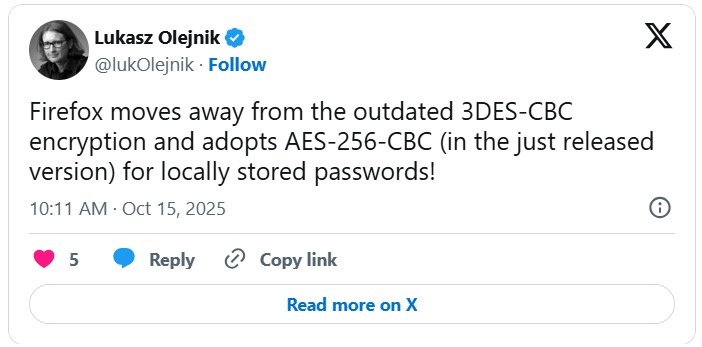
Mozilla has announced the early development of Firefox VPN, a free, browser-integrated virtual private network designed to secure Firefox browsing without requiring full-device coverage.
This experimental feature is distinct from the existing paid Mozilla VPN service and reflects Mozilla’s continued push to bake privacy tools directly into its flagship browser.
The Firefox VPN will initially be tested with a small group of users and will focus solely on protecting traffic within Firefox itself. Mozilla is approaching the project as an iterative experiment, starting with basic functionality and gradually expanding based on feedback, technical performance, and user needs.

The first test version of Firefox VPN will allow selected users to route their Firefox browser traffic through Mozilla’s VPN network, enhancing online privacy and limiting tracking. Over time, Mozilla aims to incorporate more granular controls, such as per-site and per-tab VPN usage, automatic VPN activation on public Wi-Fi, and user-selectable geographic locations for endpoint routing.
This new initiative complements, but does not replace Mozilla VPN, a $4.99/month full-device VPN service that protects up to five devices across major operating systems. Mozilla clarified that Firefox VPN is a separate, built-in feature meant to offer lightweight, no-cost protection within Firefox itself, without requiring a standalone app or subscription.
Mozilla, a non-profit organization best known for its open-source Firefox browser, has long prioritized user privacy as a core value. By launching Firefox VPN as a free tool embedded directly into the browser, Mozilla follows a similar strategy to Opera, which has offered an integrated VPN for years. However, Mozilla emphasized that its approach would reflect its own principles of transparency, trust, and user control, eschewing ad-based models or third-party data sharing.
While details about the underlying technology have not yet been fully disclosed, users in the Connect discussion have expressed interest in features such as split tunneling, per-tab VPN routing, VPN activation indicators in the UI, and support for advanced VPN protocols that can bypass national censorship.
New Firefox is out
Mozilla has also just released Firefox 144.0. The update introduces several privacy and usability improvements, including a revamped Profile Management system that allows users to separate browsing contexts with isolated bookmarks, tabs, and history.

The version also brings a major encryption upgrade to Firefox Password Manager: it now uses AES-256-CBC, replacing the outdated 3DES-CBC scheme for encrypting locally stored credentials. This change enhances resistance to brute-force and info-stealer malware attacks by aligning with modern cryptographic standards.






Thanks for your grat work Alex!
It would be nice if Firefox would change this policy too 😉
Firefox tracks user data primarily through features like Enhanced Tracking Protection, which blocks various trackers and scripts while browsing. Additionally, Mozilla collects certain data to improve services and may use a feature called Privacy Preserving Attribution, which tracks user behavior for advertising purposes, although this has raised privacy concerns. Source: https://noyb.eu/en/firefox-tracks-you-privacy-preserving-feature
Normandy (Go to: about:config and look for Normandy! You can turn it off) in Firefox refers to a system that allows Mozilla to remotely control Firefox clients to perform various actions and gather user feedback without needing a full update. Source: https://mozilla.github.io/normandy/dev/concepts.html
Best regards